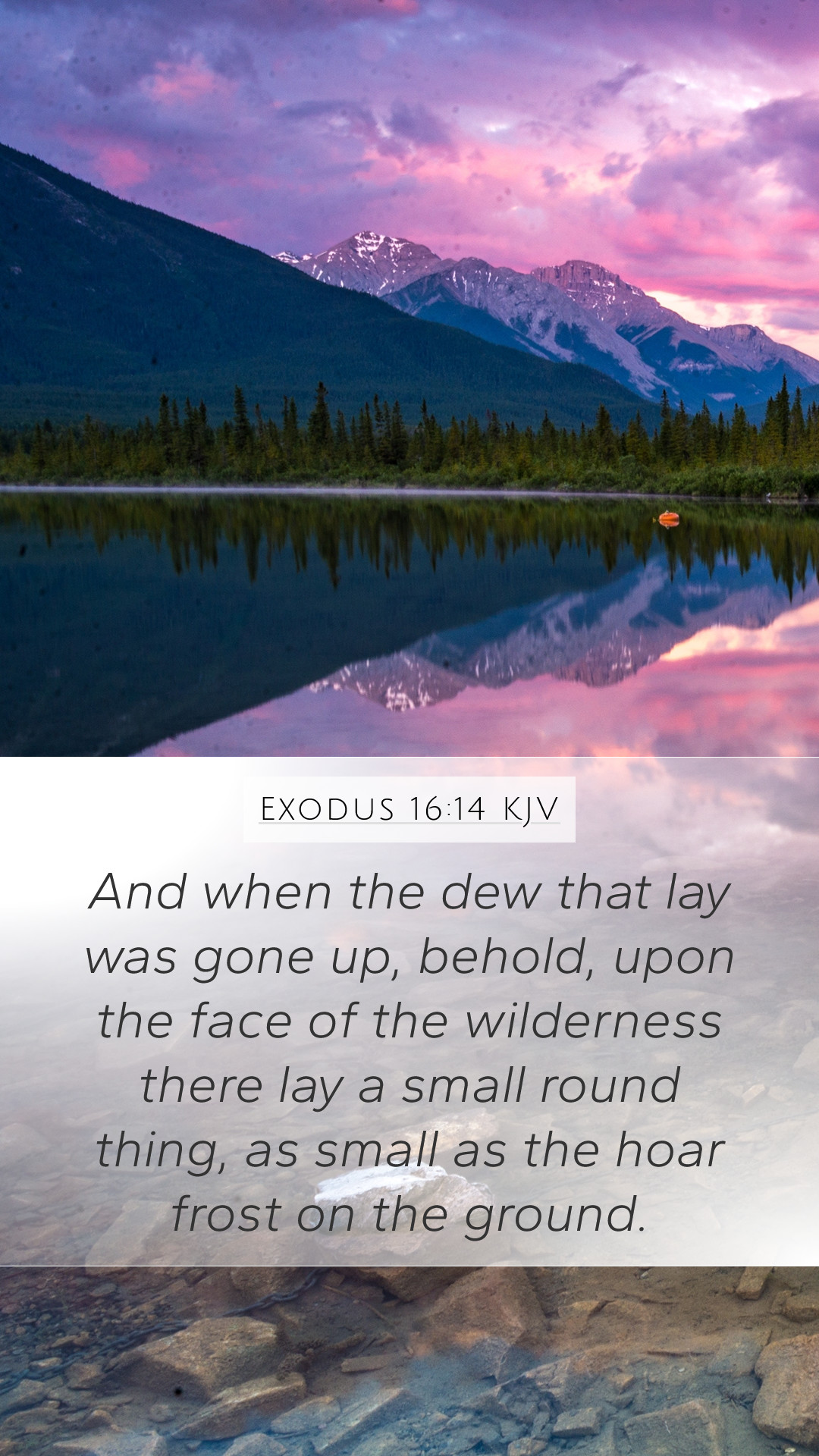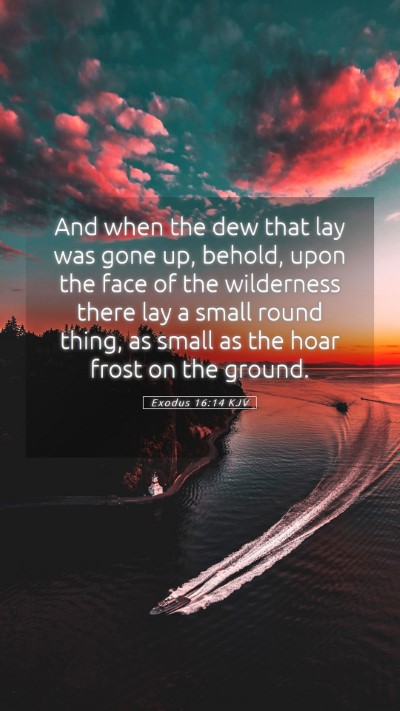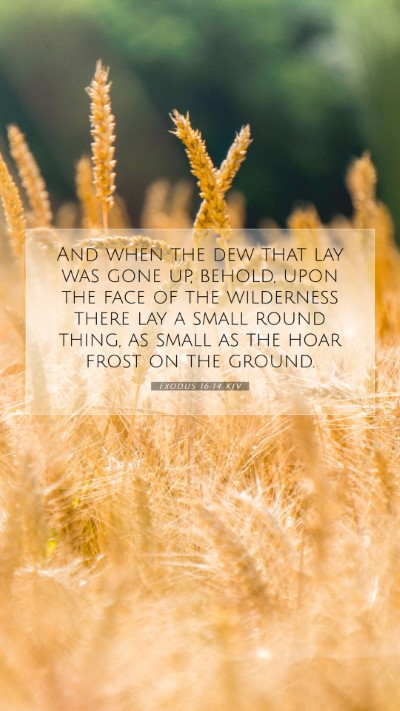Exodus 16:14 - Understanding the Provision of Manna
Verse: Exodus 16:14: "And when the dew that lay was gone up, behold, upon the face of the wilderness there lay a small round thing, as small as the hoar frost on the ground."
Comprehensive Overview
The verse Exodus 16:14 describes a significant moment in the history of the Israelites as they journeyed through the wilderness. After the dew evaporated, the people discovered a peculiar substance on the ground. This event marked the miraculous provision of manna, which would sustain the Israelites during their time in the desert.
Bible Verse Meaning
According to Matthew Henry, this verse illustrates God's miraculous provision for His people. Despite their discontent and complaints, God provides for their needs. It signifies not only physical nourishment but also the spiritual sustenance that comes from relying on God during times of uncertainty.
Albert Barnes emphasizes the miraculous nature of manna, describing it as a sign of God's direct intervention in the lives of the Israelites. The imagery of the dew turning into sustenance can be interpreted as a divine response to human needs, showcasing God's faithfulness and ability to provide abundantly.
Adam Clarke also concurs, noting the symbolism of the manna as a foreshadowing of Christ – the Bread of Life. Just as the Israelites relied on manna for physical nourishment, believers are invited to rely on Christ for spiritual sustenance. This connection highlights the significance of God's provision not just in the physical sense but also in a deeper spiritual context.
Key Themes and Insights
- Divine Provision: The verse exemplifies God's care and provision in the sustenance of His people, especially during challenging periods.
- Symbolism of Manna: Manna serves as a physical representation of spiritual nourishment and reliance on God.
- Consequence of Discontent: This context shows the human tendency towards discontent, encouraging readers to reflect on their own response to God's provision.
- Foreshadowing of Christ: Manna can be viewed as a prelude to the ultimate Bread of Life, Jesus Christ, offering believers a deeper understanding of sustenance in faith.
Bible Verse Explanations and Commentary
In examining this verse, we can gather various interpretations that contribute to a more profound understanding of Scripture. Each commentary provides layers of insight into God's character, His actions, and the implications for His people.
Overall, Exodus 16:14 is a pivotal moment that serves as both a literal and metaphorical teaching point about trust in God's provision. Throughout Scripture, understanding the symbolism and events surrounding manna illustrates the broader narrative of God’s faithfulness from the Old Testament into the New Testament and beyond.
Application to Daily Life
Reflecting on such passages helps individuals interpret the relevance of God's Word in their lives today. Just as the Israelites were dependent on manna in the desert, modern readers are encouraged to consider how they seek spiritual sustenance in their relationship with God.
Incorporating the understanding of biblical nourishment into daily routines can be transformative. Engaging in prayer, studying Scripture, and participating in community Bible study groups can foster deeper insights into one's faith journey.
Related Bible Cross References
- John 6:31-35: Jesus refers to Himself as the Bread of Life, linking to the theme of divine provision illustrated in Exodus.
- Psalm 78:24-25: This passage recounts God providing manna to His people, reiterating God’s faithful provision.
- Deuteronomy 8:3: Highlights the purpose of God providing manna as a way to teach reliance on His word and not just physical bread.
Conclusion
Exodus 16:14 provides rich opportunities for understanding Bible verses profoundly through commentary and analysis. By studying this verse, readers can appreciate the depth of God’s provision for His people, both physically and spiritually. Additionally, it establishes an essential foundation for exploring themes of faith, dependency, and divine sustenance—principles that remain applicable to believers' lives today.


